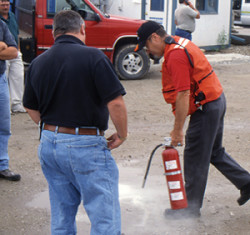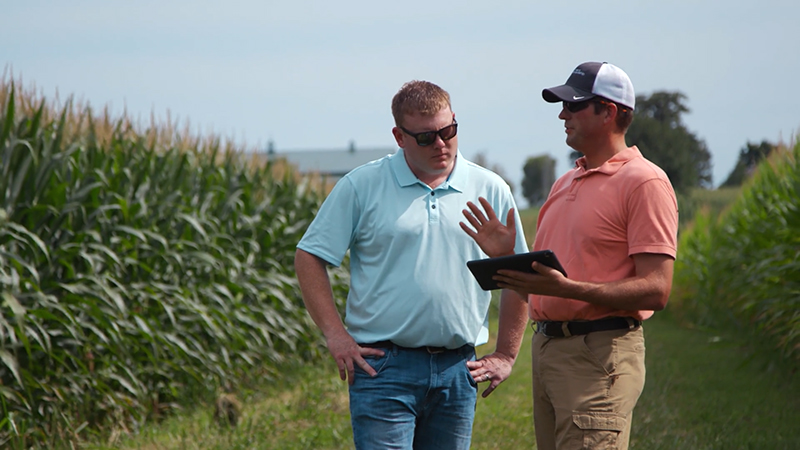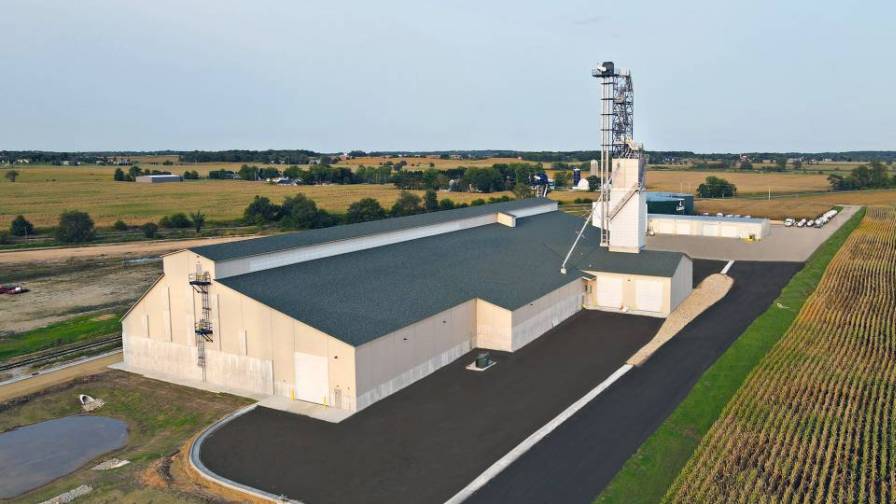How Ag Retailers Manage Safety Protocols

An important part of any ag retailer’s daily quest to remain secure is keeping tight control over safety concerns. Indeed, many retailers place as much emphasis on safety measures as their security ones.
“Safety is everyone’s concern at McGregor,” says Tom Zornes, office manager for The McGregor Co. in Oakesdale, WA. “Once employees are hired by us, they are not permitted to work in the field until they have all the necessary licenses and are trained regarding the proper and safe handling, mixing, and delivering of all products.”
Here we focus the spotlight on how ag retailers manage their safety protocols.
1. Have Plenty Of Safety Equipment On-Site
By law, ag retailers are required to have certain safety devices at their facilities. These include several strategically placed fire extinguishers and fresh water reserves on anhydrous ammonia nurse tanks. However, there are other items of safety equipment to have on hand as well such as gas masks and eye buffer solution.
In addition, says Jeff Black, area manager for Oakesdale McGregor, retailers should keep a spill kit at their facility to handle product mishaps.
“Ideally, this kit should be located somewhere where anyone can get to it at a moment’s notice and contain all the safety items needed to safely clean up a spill,” says Black.
2. Install Permanent Safety Stations Where Needed
Besides having various pieces of safety equipment on-site, retailers also need to have several fixed safety stations on their grounds. In most instances, these should include plenty of eye wash stations and safety showers located near hazardous materials.
“It’s very important to have showers and eye washes in as many places as you can,” says Garry Rasmussen, unit supervisor for Simplot Grower Solutions, Berea, NE. “These should be periodically checked by someone at your facility to make certain that they are working properly and the water they dispense is clean.”
3. Regularly Conduct Employee Safety Training
According to ag retailers, having the proper safety equipment on-hand is important, but having employees that know what they are doing is more so. For this reason, industry insiders say that regularly holding employee safety training is very important to maintaining a safe working environment.
“Wisconsin River Agronomy places an important emphasis on employee training, including in-depth mandatory safety training for all employees prior to the spring planting season,” says Scott Firlus, agronomy manager for Wisconsin River Agronomy, LLC, Adams, WI. “Employees are given detailed right-to-know information on the clean-up of dry fertilizer spills, including how to report any spills on-farm or in transit.”
4. Bring In Outside Emergency Responders For Training
As a final step toward safety preparedness, ag retailers need to involve their employees with local emergency personnel. This can range from an informal gathering a few times per year to extensive safety drills being conducted at the facility.
“Our local volunteer fire department, as well as the city, has been actively involved with our emergency response plan,” says McGregor’s Zornes. “I worked on the steering committee for developing the Whitman County Hazardous Mitigation Plan and have worked with the city and county on emergency preparedness and emergency response issues.”






